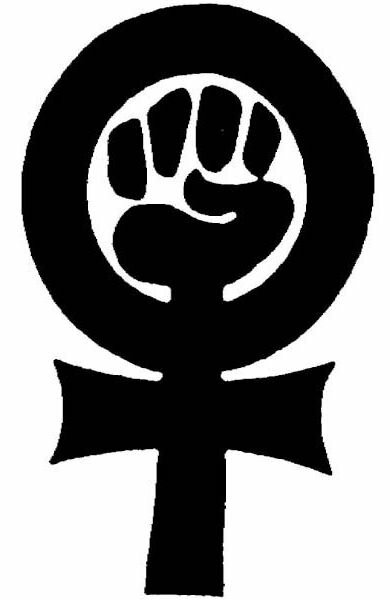Embracing feminisim twenty years later
Featured, Women — By Deborah Plummer on January 12, 2010 at 05:23I went to graduate school to become a psychologist in the 1980s. In that era, the real examinations of my graduate education came not from mid-terms, finals and comprehensive exams, but from whether or not I could articulate and demonstrate my black racial identity to the black community and my degree of feminism to my white women professors and colleagues.
Since I had just left a religious community, (where I lived in a totally white, women environment and taught white high school girls all day) I was far more interested in investigating and reclaiming my black racial identity than embracing any form of feminism. Yet, studying psychology, it was impossible to escape the political, cultural and social movement known as feminism that aimed to establish equal rights and legal protection for women.
My graduate advisor was a feminist (whom I loved and respected), as was the counseling psychology program chair. We read and discussed Simone de Beauvoir’s Second Sex and Betty Friedan’s The Feminine Mystique. I read Susan Faludi’s Backlash: The Undeclared War Against American Women, and was totally confused about the legitimacy of feminism. Somewhere around that same time, I read some works by Alice Walker where she described herself as a womanist.
She claimed that black women experienced a more intense form of oppression than that of white women and our feminist struggle would be far more complicated and intense. It was a well documented fact that the feminist movement was largely led by white, middle-class, educated women and women of color’s voices were absent or considered so soft spoken that they were not heard.
The fact that Alice Walker and others like Angela Davis were able to speak from their dual identity of a black woman resonated with me. I could close down any inquiry of my feminist identity by simply stating I was a womanist. Since most white women did not want to touch the race dimension with a hundred-foot pole, I was left to peacefully pursue and study racial identity absent any serious exploration or engagement with feminism.
So when the invited topic was that of women’s issues I had to give it some serious thought to what I wanted to write about. I asked my facebook friends to let me know what contemporary women’s issues were most important to them and what they wanted to hear about. Here are some of the thoughtful and intriguing responses I received:
- Tarita Mosley: Equal pay for sistas doing same job as a man but not being paid the same salary.
- Carlita Campos: HIV & AIDS and how it’s affecting women—not just stats about a human interest story but finding a willing participant.
- Quintene Wolfe-Graham: Issues with interracial dating/marriage. It seems as though black men (athletes, entertainers, actors) date/marry white women. You would think that they would try to find a black woman to share their success with.
- Connie Atkins: Ways sistas can help with changing the crabs in the barrel attitude in our community.
- Brenda Malone: Why we beat up each other instead of joining together. If we all worked together for the common cause of supporting and uplifting each other instead of criticizing appearances and attitudes, we could change the face of our shared plights. Why do we ALWAYS HAVE TO BICKER AND SNICKER [sic}about other black women and instead spend that energy discussing how to love, respect and motivate each other. THAT [sic] would be an awesome phenom!
- Kristen Fragass: How about the Imperial Avenue murders in Cleveland? Phil [her husband] and I were appalled at how when one white woman goes missing in Utah or CA, it is national news. When 11 black women go missing—very little attention until they are found in a property grave years later and then my accident! (note: Kristen is white).
- Rachel Danie: I have a few thoughts across the elements of a woman’s life:
1) Moving your career to the next level in a down economy: How to stand out in your discipline (field, profession, etc.); 2) How staying motivated and positive can save your career (and life). - Jeanette Diaz: Being a single mom and handling it all.
- Sherree Anderson: With the Hispanic community, now the fasting growing group (Remember when it was African American?)—How does this change the landscape?
When I read through the Facebook list naming contemporary women’s issues the date could as well be 1980 instead of 2010. I am a bit amazed and saddened by that fact. I belong to several professional women’s group of powerfully talented women who collectively could make a significant difference in our boardrooms and classrooms across our nation. Yet, I know there is a force called sexism that deflects or in some cases, blocks a lot of that energy toward good.
It has been twenty years (yikes!!) since I left graduate school. I have turned over many stones on racial identity. Now this “woman thing” rises like the sphinx in my world. It does not enter my soul with the same kind of identity struggle as that of my racial identity resolution— for I have always embraced and understood what it meant for me to be a woman. But it pokes at me from an advocacy, civil rights, social justice perspective. Maybe it is time for me to return to my graduate school teachings and fully embrace feminism. As the saying goes, better late than never.
Tags: Contemporary women's issues, Feminism, WomanismAuthor: Deborah Plummer (3 Articles)

Deborah L. Plummer, Ph.D. is a nationally recognized psychologist and diversity solutions thought leader with almost 30 years of professional experience. She is the founder of D.L. Plummer & Associates, a consulting firm specializing in diversity management and organizational development. She has consulted for a variety of national and local corporations including Fortune 500 companies, community mental health agencies, public and private school systems, and faith-based institutions. Deborah also has extensive experience inside organizations and has held past positions as a chief diversity officer, university professor, director of a graduate degree program, and a staff psychologist. Deborah’s success in diversity management is largely due to her personal background. Deborah grew up as a first generation American in an inner city Cleveland working-class Black neighborhood. The daughter of immigrant parents, her Jamaican father worked as a parking lot attendant and her Panamanian mother was a homemaker who later worked as a parts inspector in an industrial plant. “I grew up speaking Spanglish with Ebonics in a predominantly White school, attended Mass at a Catholic church and ate rice and beans as well as other traditional Hispanic foods.” Deborah credits her parents as her first diversity management teachers, as they were open to what Deborah came to know as the Big 8 Dimensions: race, gender, ethnicity, age, sexual orientation, class, mental/physical ability and religion. “[My parents] lived by the simple fact that we are all humans and part of God’s family. We were poor financially but never knew it because of the richness of our American experience. I was more than lucky because I grew up experiencing the benefits of diversity.” Perhaps one of Deborah’s most unique experiences was after high school when she went on to spend 13 years as a nun living in a majority White European religious community. “This experience really shaped my belief that in order to truly advance diversity principles one must have multicultural experiences in their lives and friends that cross racial lines.”Leadership Deborah is a successful author of Racing Across the Lines: Changing Race Relations through Friendships (The Pilgrim Press), which received the Mayflower Award for best publication in the category of Church and Society, and she is the Editor of the Handbook of Diversity Management: Beyond Awareness to Competency Based Learning (University Press of America). In addition, she is an avid blogger who has written numerous book chapters and journal articles. Active in her civic and faith communities, Deborah serves on several boards and is a member of a host of professional and service organizations. As a noted national speaker to professional organizations, civic communities, colleges and faith-based groups, she is regularly featured as a guest psychologist and diversity expert for several Cleveland news channels.



 Share This
Share This Tweet This
Tweet This Digg This
Digg This Save to delicious
Save to delicious Stumble it
Stumble it





 The DREAM Act goes down... Again
The DREAM Act goes down... Again Will someone help Sen. Graham with all those black folks?
Will someone help Sen. Graham with all those black folks?







